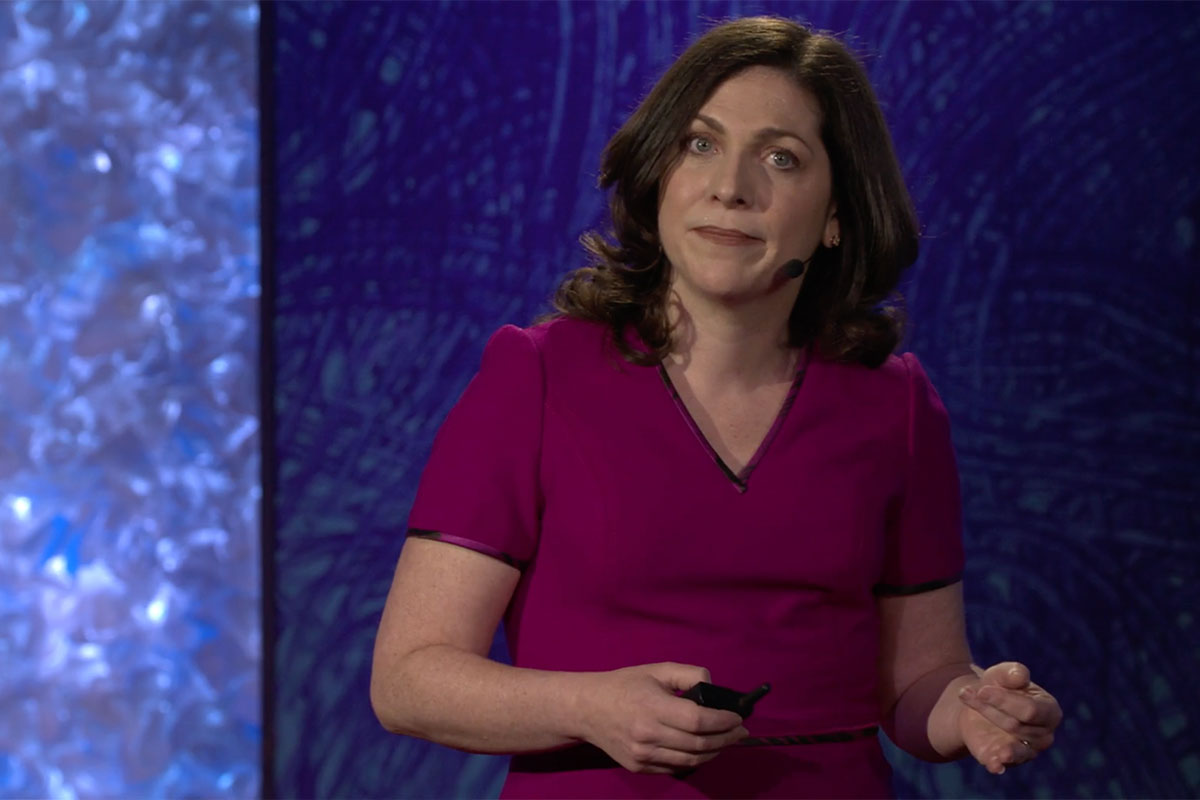In a 2018 TED Talk, Teachers College’s Kimberly Noble argued that if, as her study, “Baby’s First Years,” aims to show, monthly cash supplements to impoverished new mothers can improve brain development in newborns, America should dramatically rethink its approach to social services.
Previous research by Noble, Professor of Neuroscience & Education and Director of TC’s Neurocognition, Early Experience and Development (NEED) Lab, and others has shown that in children from wealthier families, the surface of the brain’s cerebral cortex, which does the “cognitive heavy lifting,” is, on average, larger — a characteristic associated with higher intelligence. Family income and brain surface size correlate most strongly in the poorest families. Kids in poverty score lower on tasks of language and impulse control by age two — and by age 35, children born into poverty are 75 times more likely to be poor. Yet “the brain is not destiny” — experience changes it, especially early in life — “and if the brain can be changed, anything is possible,” Noble said in 2018.
On average, more advantaged parents tend to have lower levels of hair cortisol, supporting this idea that the biology of stress really might account for socioeconomic differences in brain development in kids.
— Kimberly Noble, Professor of Neuroscience & Education
But precisely how does poverty make a negative impact on developing brains? This past week, in an interview on NPR’s TED Radio Hour, Noble said the answer may be stress. Her lab is measuring levels of cortisol, a stress hormone, in hair samples, she told interviewer Manoush Zomorodi. “On average, more advantaged parents tend to have lower levels of hair cortisol, supporting this idea that the biology of stress really might account for socioeconomic differences in brain development in kids.”
Which is one more reason to rethink social policy: “So much of the intergenerational cycle of poverty has often been attributed to whether individuals are willing to pull themselves up from their bootstraps,” Noble said. “But babies don't have bootstraps.”
